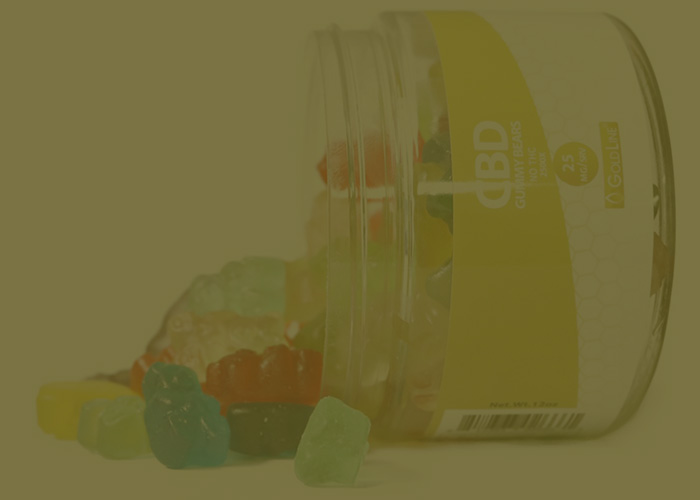Education
The Science Behind CBD and Drug Tests: Everything You Need to Know
Are you worried about CBD and drug tests? Learn all you need to know and the science behind it.
If you are considering adding a dose of CBD oil into your lifestyle, you likely already know the benefits cannabinoids provide for your health and well-being. As a proven method for stimulating the production of the naturally-occurring endogenous cannabinoids your body already produces, you may have already settled on taking small supplemental doses of CBD oil to treat inflammation, anxiety, chronic pain, or simply as an all-natural way to balance your lifestyle and feel generally, well, better.
Whatever your reasons for rolling CBD oil into your life, there is a final question for most users that simply has to be answered: will CBD show up on a drug test?
There’s a simple answer to this! But, before we get there, we’ll take a look at some key some caveats you should be informed of first, to make sure you take the safest path possible in making sure your employment is not threatened by CBD and drug tests.
CBD Is Not Recreational Marijuana
Simply put, hemp-derived CBD and recreational marijuana are about a similar as apples and oranges. While the familiar five-pointed leaf is an iconic image that immediately brings to mind the THC-infused recreational variety, that is simply one corner of the cannabinoid-enhanced hemp family tree.
Extracting cannabidiol from low or no THC hemp plants is standard practice for the natural processing method that leads to supplemental CBD.
However, as broad as the hemp family of plants is, these plants do have many commonalities between them. Apples and oranges, after all, are both ultimately fruits.
THC Does Appear in Trace Amounts in CBD Oil
Hemp and recreational strains of marijuana have similar chemical environments between them, even with the lower, almost non-existent incidence of THC in the former.
The presence of THC is extremely low in CBD oil, typically less than 0.3 percent THC. Taken at average doses, most drug tests rarely detect such trace amounts. You cannot get high off these minuscule amounts, and they are not at the levels most drug tests — usually urine-based, short term tests — are looking for.
A standard CBD dose goes a long way: 25mg capsules to 500mg tinctures cover the range from a low to high necessary dose. Be sure to review third-party testing results to confirm accurate amounts.
However, exceptionally heavy CBD use can lead to a cumulative concentration of THC. 1000mg to 2000mg of daily CBD oil consumption has a small chance of adding up enough trace THC to lead to detection on a test for recreational drug use. This is an amount reserved for patients with acute needs, and the vast majority of CBD users do not need anywhere close to this amount.
CBD Is Subject to the Same Laws as Hemp
In the United States, CBD is explicitly legal in much of the country. However, any product with recreational amounts of THC content remains federally illegal. Under the recently-passed Farm Bill, as of this year, hemp growers are able to receive the same protections, subsidization, and other benefits that apply to other crops. This includes fully legalizing hemp products that were previously stuck in legal limbo. CBD is explicitly protected by this bill. In the lead up to it coming up for vote, CBD was a hot topic among some lawmakers; however, the proposed amendments never made it to the final bill, and CBD is covered fully by the protections afforded by the Farm Bill.
CBD is also increasingly mainstream. The known benefits are regularly discussed on local news programs, around the watercooler at work…anywhere and everywhere! The stigma around hemp products has largely dissipated.
CBD Isolate Is Less Detectable Than Full-Spectrum CBD Oil
There are two major categories of CBD: Isolated cannabinoid products and full-spectrum CBD oil.
As with the higher dose discussed above, for most people, the extracted Isolated oil products are more than enough to achieve noticeable, valuable health benefits. However, people with specific needs may find that full-spectrum oil that retains more of the non-canniabidiol aspects of the hemp plant gives a more well-rounded, effective result.
Full-spectrum oil is not recommended for people who may receive drug tests. Because it is not processed to fully isolate cannabidiol, trace amounts of THC are more prominent. While it may evade detection in some drug tests, the risk remains.
The Answer to CBD and Drug Tests
The simple answer to whether CBD will show up on a drug test is no! To be absolutely safe, consider the caveats listed above, and if you were hoping to take full-spectrum CBD oil you should check with your local laws as well as the drug policy of your employer.
CBD is a health product that will enhance your well-being in natural ways, but it is in no way recreational. Drug tests look for THC specifically, not the other aspects of hemp plants such as cannabidiol. Take reasonable daily doses, avoid full-spectrum CBD oil, and you can happily maintain your new, healthier lifestyle without the unintended consequences of a false positive on your next drug test.
To learn more about the benefits of CBD, as well as more about CBD and drug tests or where you can buy CBD oil, contact an expert today.

